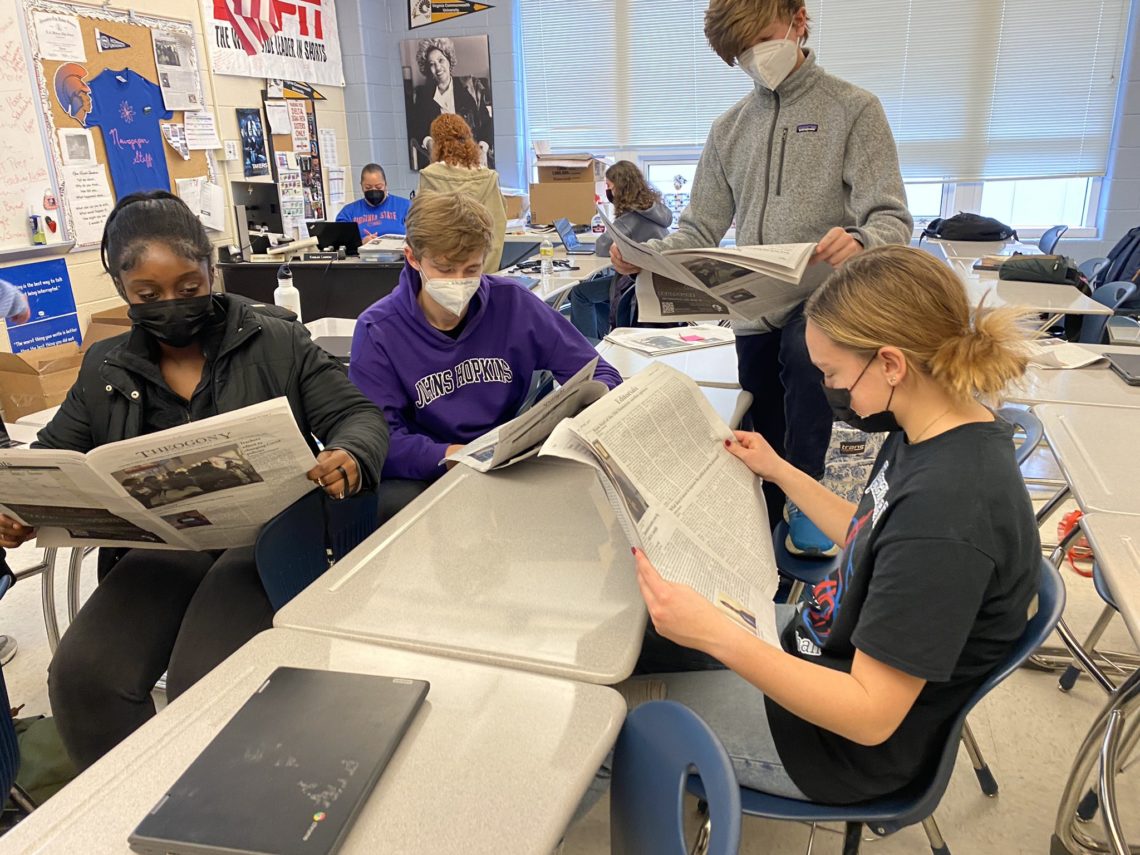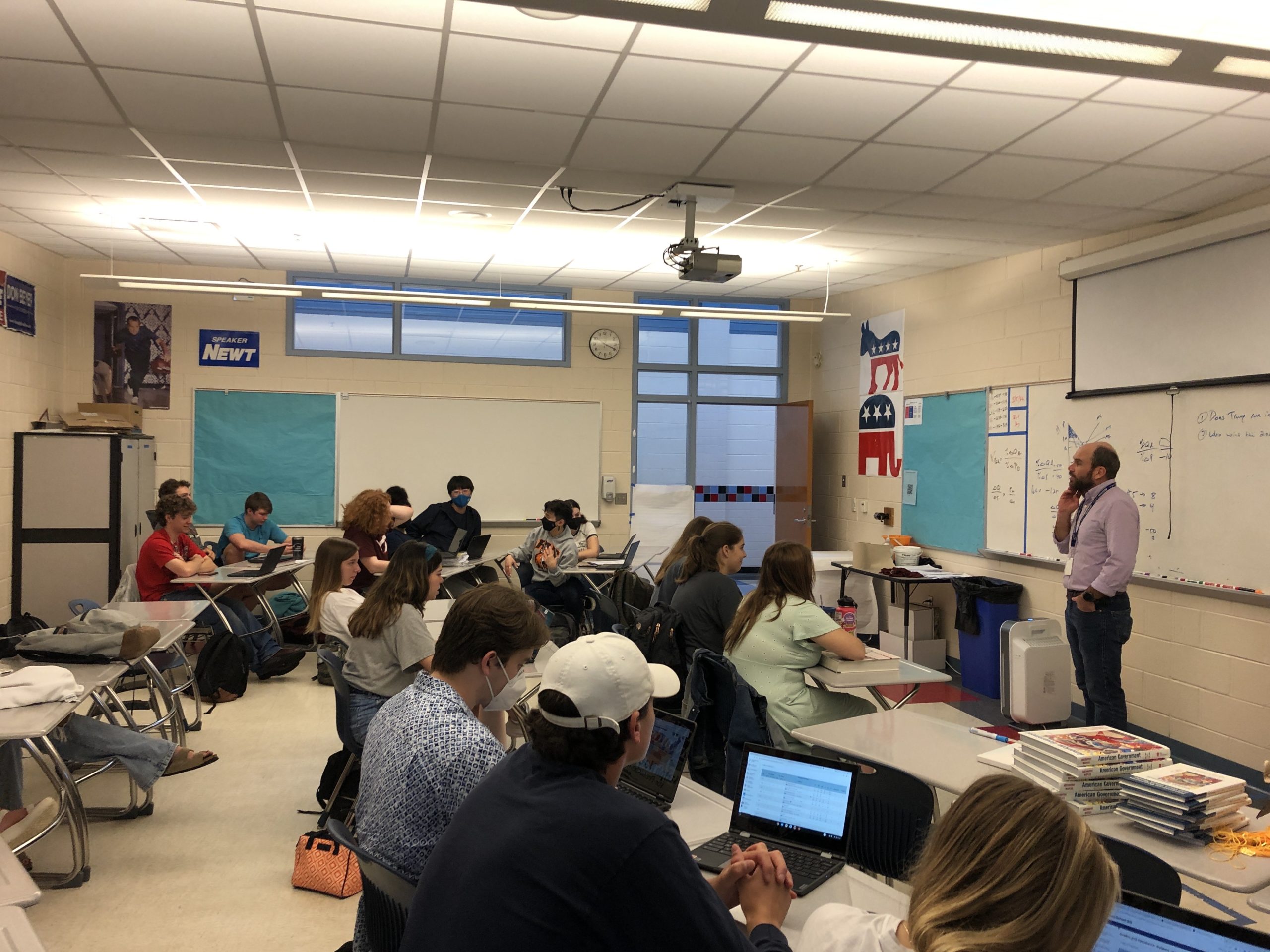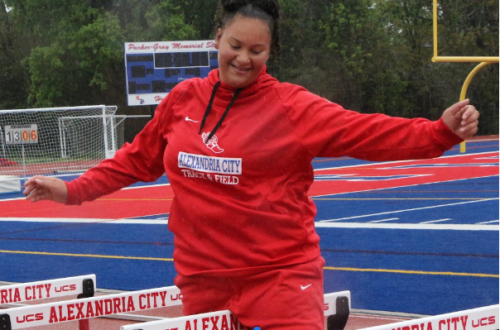Theogony, with its balance between oversight and freedom, is an opportunity for growth
Peerawut Ruangsawasdi
Staff Writer
Recently, I wrote an op-ed on why some students are reluctant to share their ideas candidly. I suggested potential solutions to the problem, namely outlets for expressions such as Socratic Seminars and class discussions. This time, I’d like to talk about another form of expression that students should take advantage of if they can — joining, or contributing to, Theogony.
Socratic Seminars and class discussions, like community circles, provide ways for students to practice articulating their thoughts and ideas. They also, perhaps most importantly, train students to express themselves civilly and frankly. These spoken forms of discussion rely on teachers’ facilitation of activities in the classroom. It is necessary — for without the assistance of teachers, dialogue often goes awry.
But there is another form of expression at ACHS — and that is Theogony. The student newspaper of ACHS has been a forum for discussion for many years.
There are many benefits to the written form. English teacher Soukanya Lai-Sobchak said students express themselves the most through writing. Writing and editing take time. The process forces the writer to back up their beliefs with facts, evidence, logic and reasoning. The writer must hold herself accountable.
This might sound like self-promotion, but we are really lucky to have a robust and diverse journalism program at ACHS. While the composition of the writers is still predominantly White, the paper has made numerous diversification efforts. The diversity of the paper is crucial to ensure the reflection of the various perspectives that are present in ACHS. But the paper is not only diverse when it comes to the backgrounds of the writers — some of whom grew up in different countries or don’t take the Journalism 2 class dedicated to running the paper (Theogony welcomes individual submissions) — but also in its various broad categories: school news, reviews, satirical content, and of course, opinion pieces like this one. Students write opinion pieces about topics that they are passionate about or find interesting, ranging from HBCUs to the state bird to economic and monetary policy. Everybody gets a bit of everything.
Another good quality of the program is the high degree of independence from the ACHS administration that it has long enjoyed. Theogony describes itself as a “student forum,” implying that it has the freedom to publish almost all kinds of content. And that has generally been the case over the years.
Sure, ACPS policy states that school publications aren’t intended to provide a forum for students or the public; and that the principal, as editor, is supposed to approve every article before publication. Similar policies exist in many other Virginia school districts. But this policy is neither practical nor in practice. Instead, principals rely on faculty advisors to make those decisions on their behalf. ACHS Principal Peter Balas said he puts professional staff in charge of school media and publications who he knows will make the right decisions. He said that unless the faculty advisors alert him if there is anything that he needs to be aware of, he finds out about the stories when they are published.
A.C. Principal Peter Balas. Photo by Peerawut Ruangsawasdi.
“I don’t censor. I never have had to censor,” Balas said confidently. “There’ve been some controversial topics in there before. … I have never pulled a plug on a story or anything like that.” He said that unless an article was breaching the privacy of a student, “I can’t imagine I would pull something [out].”
“Mr. Balas has always seemed supportive of our mission as a school newspaper and has avoided interfering in our work,” said Theogony consulting advisor Mick Heller, who also pointed out that Balas could have technically exercised prior restraint on past controversial articles if he wanted to. “And I’ve greatly appreciated that.”
“I would hope most administrators would defer to the student journalists to the maximum extent possible. … I think ACPS and the administrators here at this school have tended to do a great job finding that balance,” said government teacher Andrew Orzel of the intricate balance between oversight and editorial independence in the journalism program of ACHS. “For example, some of [Theogony’s pieces] over the past few years would clearly have been blocked by most school districts. I think it is a testament to ACPS that they have placed so much trust in students.”
While ACPS has done a great job of delegating to advisors and students, other districts have not been as fortunate.
To counter policies and practices like this, which are the consequences of the Supreme Court ruling in Hazelwood v. Kuhlmeier (1988) that gave administrators broader powers over content in published school newspapers, several states passed “New Voices” acts. These are part of a series of legislation that provides additional protections for student journalists in secondary and higher education, as well as their faculty advisors. In Virginia, protections for middle and high school student journalists were taken off from the final version of the bill.
“It was amended because some members of the General Assembly thought Del. Hurst [gave] too much leeway to reporters who aren’t adults,” said Del. Danica Roem (D-13), who in 2020 was an original chief co-patron of the New Voices in Virginia Act along with former Del. Chris Hurst (D-12), “though I would suggest that a student newspaper in high school still doesn’t have to be the sounding board for school administration and staff when students are learning how to report the news under [a] faculty supervisor.”
Commenting on the policy, School Board member Abdel-Rahman S. Elnoubi said it “establishes the appropriate guidelines and strikes that appropriate balance.” He also said that the community could hold the school board accountable if it decides that the district engages or tolerates censorship. School Board member Ashley Simpson Baird said the policy “is there and can [be] used as needed but doesn’t have a hand in every article that is published.”
After thanking me for my “media inquiry,” ACPS Superintendent Gregory C. Hutchings did not provide any other comment on the matter and redirected the question to the ACPS School and Community Relations Chief, Julia Burgos, who said, “As superintendent, Dr. Hutchings is charged with upholding School Board policy.”
Another common concern is that student journalists don’t pursue hard-hitting stories.
“My own experiences have convinced me that today, the vast majority of students are unable to practice true journalism at their high school papers,” wrote journalist Richard Just in 2009. “Many have been taught to write fluffy profiles of teachers and to celebrate the achievements of their sports teams; fewer have been encouraged to challenge, to criticize or to investigate.”
However, if you take a few minutes to scroll through Theogony’s articles on the website, you would see that Theogony is not afraid to talk about problems. It has tackled the WiFi issue (multiple times), the gender gap in college enrollment, effects of COVID-19 mitigation measures, separation in the school, the bus driver shortage and many more.
As such, not only does Theogony enjoy a lot of freedom when it comes to content, but it also possesses a culture of, well, true journalism. It presents itself as an avenue for students to express their opinions, a prime opportunity for students to practice writing and analytical skills and develop critical thinking. I agree with Roem when she highlighted the important role that print newspapers play for journalism students in teaching them how to report, edit and disseminate the news. I know Theogony and its team of writers and advisors have been great mentors for me in that regard.
As I depart ACHS and Theogony, my advice for students is that they should consider joining the paper, if they can. If not, contribute to it by submitting pieces. If they don’t have anything to contribute, then read. Read and discuss the issues that affect our community. Or just read for pleasure, take a break from schoolwork and find what you enjoy reading. In our present climate, where students are reluctant to speak up and struggle to communicate civilly, writing articles for their school newspaper, or discussing them, are magnificent ways to practice those crucial skills.
Featured photo by Theogony





